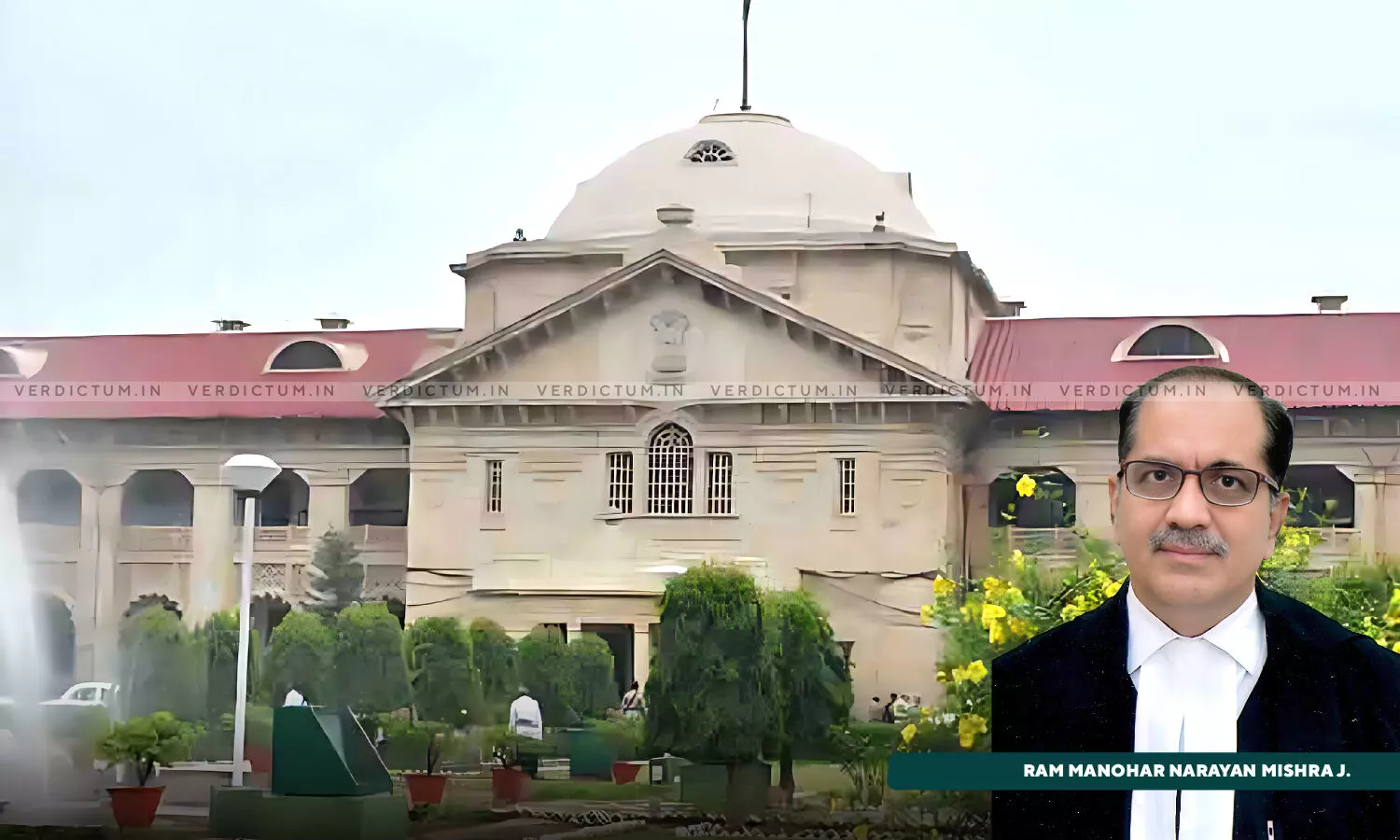
Section 156(3) CrPC- Magistrate Shouldn't Order Preliminary Investigation Or Rely On Police Report Favouring Accused In Complaint Alleging Sexual Assault: Allahabad HC
 |
|The Allahabad High Court has allowed a Criminal Revision Petition filed by a victim of sexual assault while clarifying that directing preliminary investigation to police into allegations of sexual assault made by the victim in application under Section 156(3) Cr.P.C. and placing reliance on police report submitted in favour of the proposed accused is neither desirable nor lawful.
The High Court was considering a Criminal Revision Petition filed under Sections 307 and 401 of the CrPC against the impugned judgment of the Chief Judicial Magistrate in a Criminal Complaint case whereby the application moved by the revisionist under Section 156(3) was dismissed.
The Single Bench of Justice Ram Manohar Narayan Mishra held, “ In cases like present one, in which informant has levelled specific allegations of sexual assault and molestation against the accused/respondent No.2 directing preliminary investigation to police into allegations made by the victim in application under Section 156(3) Cr.P.C. and placing reliance on police report submitted in favour of the proposed accused is neither desirable nor lawful.”
Senior Advocate NI Jafri represented the Revisionist while Government Advocate Ram Rang Patel represented the Respondent.
The applicant-victim, working as a teacher at a Civilian School, was abused by the Headmaster in a filthy language. He asked for her husband in abusive language and also acted in an obscene manner with her. He tried to molest her which resulted in outraging her modesty. When her husband reached on the spot, the opposite party escaped from there after threatening him with life. She moved an application under Section 156(3) Cr.P.C. before the Chief Judicial Magistrate, Hathras.
It was the case of the petitioner that wrong observation had been made by the Magistrate by rejecting the application under Section 256(3) of Cr.P.C. stating that no cognizable offence was made out. Reliance was also placed upon the judgment of the Supreme Court in ‘XYZ’ Vs. State of Madhya Pradesh and others to argue that on the facts of the case a cognizable offence in the nature of sexual offence was made out, which had been committed against a woman. The petitioner contended that there is no other option before the Magistrate but to direct registration of an FIR, where an application under Section 156(3) Cr.P.C. has been filed victim on her behalf.
For the respondent, Ahmad argued relied upon Lalita Kumari Vs. Government of Uttar Pradesh (2014) to contend that the Magistrate having jurisdiction is not bound to direct registration of the case and registration by police in each and every case where a cognizable offence is made out on the face of the application. The Magistrate is expected to apply his judicial mind towards the allegations made in the application so that abuse of judicial process could be avoided.
Referring to Lalita Kumari (Supra), the Bench opined that the scope of preliminary inquiry is not to verify the veracity or otherwise of the information received but only to ascertain whether the information reveals any cognizable offence. The Bench also mentioned the following category of cases as enlisted by the Apex Court in which preliminary inquiry may be made:
- Matrimonial disputes/ family disputes
- Commercial offences
- Medical negligence cases
- Corruption cases
- Cases where there is abnormal delay/laches in initiating criminal prosecution, for example, over 3 months delay in reporting the matter without satisfactorily explaining the reasons for delay.
The Bench further held, “Thus, on a conjoint reading of Lalita Kumari (supra), Priayanka Srivastava and Another vs. State of UP and others (supra) cited on behalf of the respondent and ‘XYZ’ vs. State of MP and others (supra), it can be discerned that in Priayanka Srivastava (supra), Hon’ble Apex Court expressed need of directing a preliminary investigation by a magistrate while dealing with an application under Section 156(3) Cr.P.C., in the cases which are enumerated in Lalita Kumari vs. Government of UP (supra) while lodging the FIR under Section 156(3) Cr.P.C.”
The Bench explained that in cases like the present one where the informant has levelled specific allegations of sexual assault and molestation against the accused/respondent No.2 directing preliminary investigation to police into allegations made by the victim in application under Section 156(3) Cr.P.C. and placing reliance on police report submitted in favour of the proposed accused is neither desirable nor lawful.
“The approach of learned magistrate is not in consonance with the recent pronouncements of Hon’ble Apex Court in ‘XYZ’ vs. State of MP and others in year 2022. the impugned order passed by learned trial court is found to be contrary to law and deserves to be set aside”, the Bench held while allowing the Criminal Revision and remanding the matter back to the Chief Judicial Magistrate to decide the same afresh after giving opportunity of hearing to the revisionist/de-facto complainant.
Cause Title: X vs. State of UP & Anr [Neutral Citation: 2024:AHC:164363]
Appearance:
Revisionist: Senior Advocate NI Jafri, Advocates Ali Jamal Khan & Sadrul Islam Jafri
Opposite Parties: Senior Advocate Saghir Ahmad, Advocate Rahul Kumar Sharma and AGA